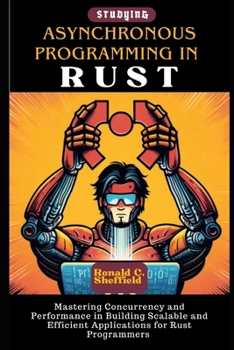Asynchronous Programming In Rust: Mastering Concurrency and Performance in Building Scalable and Efficient Applications for Rust Programmers
About the technology: Asynchronous programming is a paradigm that allows programs to handle multiple tasks concurrently without blocking the main thread. In Rust, asynchronous programming is enabled through the async and await keywords, along with the tokio runtime. This approach is crucial for building high-performance, scalable applications that can handle a large number of concurrent requests.
Worries: Many Rust programmers may be hesitant to delve into asynchronous programming due to its perceived complexity. They might worry about the learning curve, potential performance overhead, and the challenges of managing asynchronous code effectively.
Challenges: Some common challenges in asynchronous programming include:
Understanding the async/await syntax and its implicationsEffectively managing futures and tasksHandling errors and exceptions in asynchronous contextsEnsuring correct synchronization and avoiding deadlocksOptimizing performance and scalabilityWhat to expect: This book will guide you through the intricacies of asynchronous programming in Rust, providing clear explanations, practical examples, and best practices. You'll learn how to:
Master the async/await syntax and its use casesCreate and manage futures and tasks efficientlyHandle errors and exceptions gracefully in asynchronous codeImplement concurrency patterns and optimize performanceBuild scalable and efficient asynchronous applicationsGet Up and Get Started: If you're a Rust programmer looking to take your skills to the next level and build high-performance, scalable applications, this book is for you. By investing time in mastering asynchronous programming, you'll be able to create more responsive, efficient, and maintainable software.











